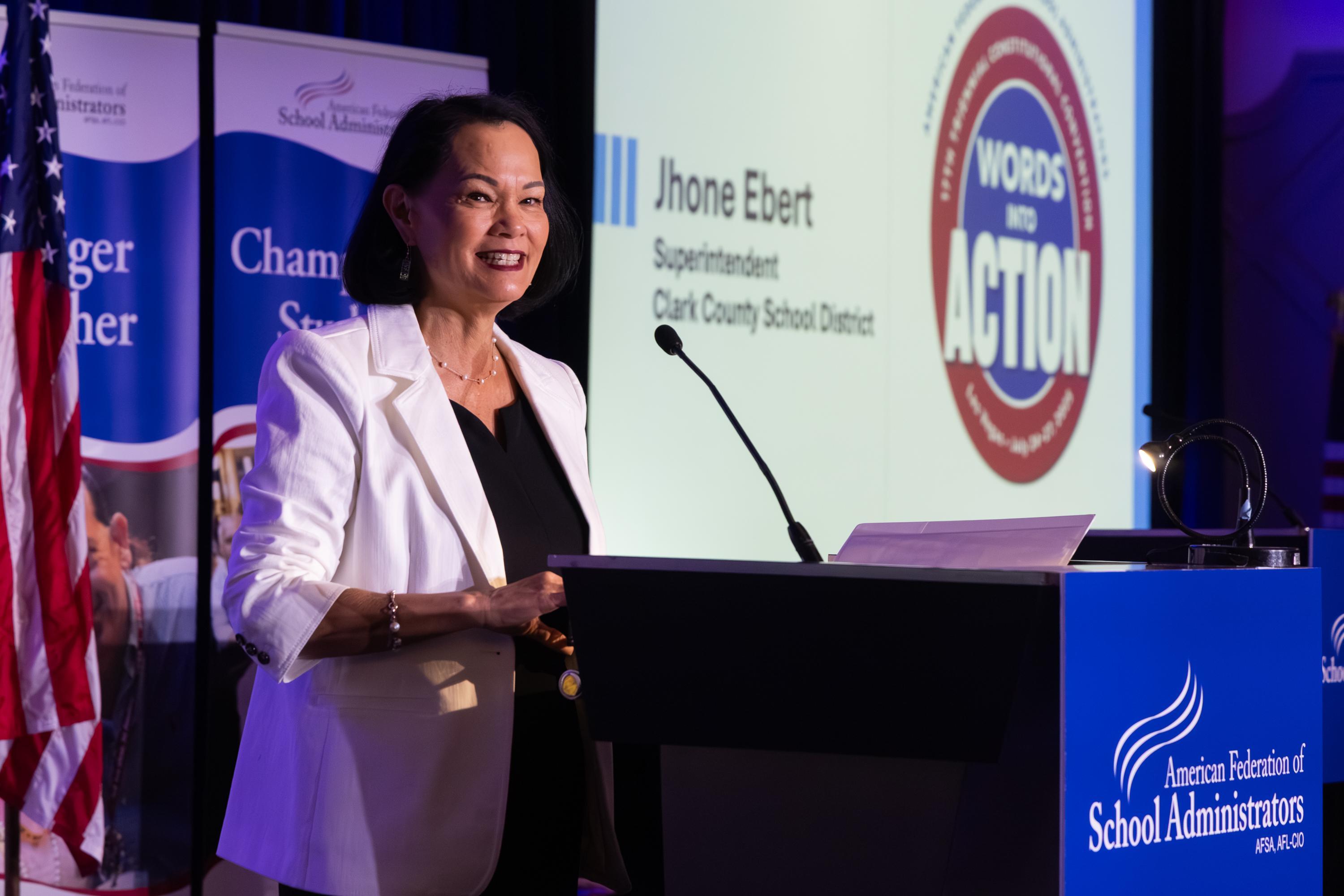Clark County School District Superintendent Jhone Ebert urged AFSA delegates to embrace innovation and equity while keeping students’ voices at the center of decision-making during remarks during the opening of the convention.
Ebert, who in 2025 became the first woman permanently appointed to lead the nation’s fifth-largest school district, described the complexity of serving students across 8,000 square miles. “From Laughlin in the south to Mesquite in the north, it takes three hours to drive our district,” she said. “We serve all — urban, suburban, rural, and frontier. We even have a mountain school with just seven students.”
Her perspective is shaped by more than three decades in education. Ebert began her career as a middle school mathematics teacher in Clark County, later moving into leadership roles that included chief technology officer and chief innovation and productivity officer. In 2015, she left Nevada to serve as Senior Deputy Commissioner for P-20 Education Policy at the New York State Education Department. Four years later, she returned home as Nevada’s Superintendent of Public Instruction, overseeing nearly 500,000 students statewide. She held that post for six years under both a Democratic and Republican governor before taking the helm at CCSD in 2025.
“Party does not matter when we’re talking about education,” she told the audience. “We grow Democrats, we grow Republicans, we grow Independents — but most importantly, we’re growing critical thinkers with empathy and voice.”
During the pandemic, Ebert led the creation of Nevada’s Portrait of a Learner, a statewide framework shaped by educators, families, businesses, and students. The plan emphasizes durable skills such as problem solving, communication, and student ownership of learning. “We start with pre-K and ask, ‘How are you going to thrive?’” Ebert explained. “That reflection empowers students to own their learning.”
Ebert also addressed the opportunities and risks of artificial intelligence in schools, drawing on her experience as Clark County’s chief technology officer. At first reluctant to take the role, she said she came to see the value of ensuring technology decisions were driven by classroom needs. “AI is amazing for individualized instruction and professional growth,” she said, while cautioning that schools must “fail forward” and learn from mistakes.
She pointed to new federal guidance on AI and upcoming competitive grants from the U.S. Department of Education as an important chance for educators to shape the technology’s future. “We need to have our voice at the table on how AI is framed and used appropriately for students,” she said.
As she closed her remarks, Ebert struck an optimistic tone about the upcoming 2025–26 school year. “This is going to be your best school year yet.”

